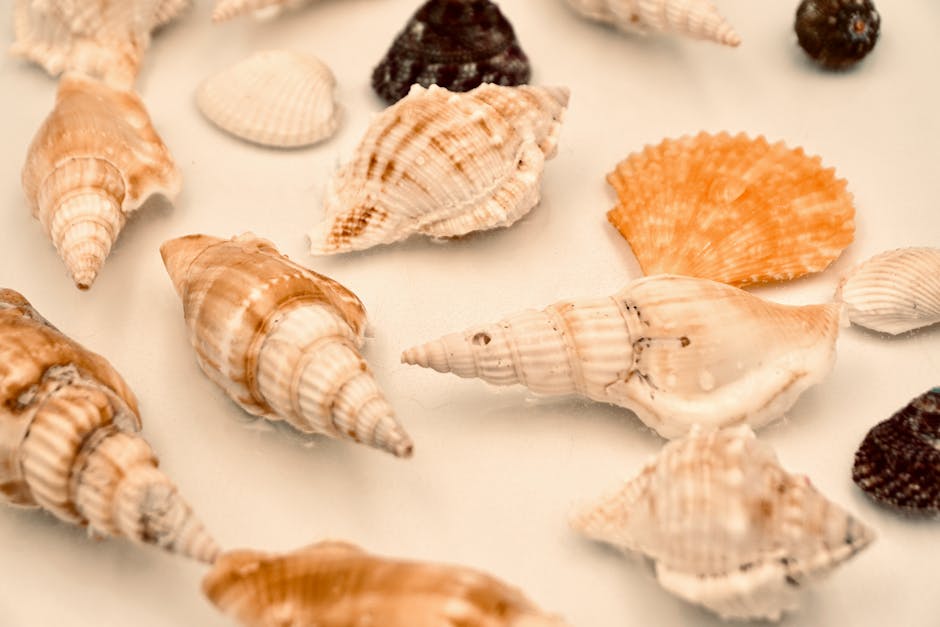The relentless increase in atmospheric carbon dioxide (CO2) is profoundly altering marine ecosystems, with ocean acidification emerging as a significant threat to numerous organisms, including shellfish. This phenomenon, driven by the absorption of excess CO2 from the atmosphere by the oceans, is fundamentally altering the chemistry of seawater, impacting crucial biological processes vital for shell formation and growth in these fascinating organisms. Understanding these impacts is paramount for safeguarding the future of shellfish populations and the broader marine food web they support.
Shellfish, encompassing a diverse group from oysters and mussels to scallops and clams, rely on calcium carbonate to construct their shells and exoskeletons. This material, a key component of their hard structures, is crucial for protection, structural integrity, and efficient foraging. However, rising ocean acidity, quantified by a decrease in pH, disrupts the delicate balance required for calcium carbonate production and shell formation, creating a cascading series of challenges for these organisms.
A primary mechanism by which ocean acidification affects shellfish is through the reduced availability of carbonate ions. Elevated CO2 levels in seawater lead to an increase in carbonic acid, which further dissociates into bicarbonate ions and ultimately hydrogen ions. This increased acidity directly inhibits the formation of calcium carbonate. The process resembles a fundamental chemical reaction, where the available carbonate ions, necessary for the synthesis of calcium carbonate, are effectively consumed.
Consider the physiological process in a mussel, for example. As the mussel attempts to build its shell, the low carbonate ion concentration translates to a significant hurdle in achieving the necessary saturation states for calcium carbonate precipitation. This translates into a diminished capacity for shell formation and growth. Furthermore, the reduced availability of carbonate ions can also compromise the shell’s structural integrity, potentially making it more vulnerable to breakage or dissolution, particularly in vulnerable life stages.
A substantial body of experimental evidence highlights the detrimental effects of ocean acidification on various shellfish species. Studies conducted in controlled laboratory settings have demonstrated reduced shell growth rates, thinner shells, and compromised mechanical properties in numerous species subjected to elevated CO2 levels. These findings are often replicated in field observations, where shellfish populations in regions experiencing higher acidification show marked declines in size and abundance.
Beyond the direct effects on shell formation, acidification can also impact the overall physiology of shellfish. Studies indicate that stressed shellfish are more susceptible to disease and predation. These heightened vulnerabilities are rooted in the diminished energy reserves allocated to growth and shell formation and, in turn, the associated trade-offs with the other essential life-sustaining processes, such as immunity and reproduction.
The impact of ocean acidification isn’t uniform across all shellfish species. Factors such as the specific species’ physiology, metabolic rates, and the rate of environmental change play crucial roles. Some species might exhibit a greater tolerance or resilience to these challenges, while others might be more vulnerable, potentially leading to local extinctions or shifts in population distribution. The intricate interplay of these factors highlights the necessity for further research focused on species-specific responses to acidification.
Moreover, the implications of this decline in shellfish populations extend beyond direct consequences on the organisms themselves. Shellfish are vital components of many marine ecosystems, forming a critical link in food webs. Their decline can cascade through the food chain, impacting predatory species that rely on them as a food source. This ripple effect, potentially affecting higher trophic levels, underscores the importance of mitigating ocean acidification as a conservation priority.
Oceanographic conditions beyond the immediate CO2 effects contribute to the overall stress on shellfish. Temperature changes, altered salinity, and the increase in frequency of harmful algal blooms, all often co-occurring with acidification, create a synergistic detrimental effect. These combined stressors increase the complexity of the challenge faced by shellfish.
The research into shellfish responses to acidification is an active area of study. Scientists are utilizing sophisticated techniques, such as culturing experiments, field observations, and modelling, to understand how different species respond to changing ocean conditions. Furthermore, scientists are increasingly incorporating molecular and genetic approaches to unravel the underlying mechanisms by which shellfish adapt (or fail to adapt) to these challenges.
The future prospects of shellfish in an increasingly acidic ocean depend critically on mitigating the drivers of ocean acidification. Reduced emissions of CO2 and strategies to enhance carbon sequestration are crucial to slowing the rate of acidification. Conservation efforts, including habitat protection and sustainable harvesting practices, can complement these global mitigation strategies and support the resilience of shellfish populations.
In conclusion, ocean acidification poses a significant threat to shellfish populations worldwide. The observed impacts on shell formation, growth, physiology, and overall health underscore the urgency of addressing this global environmental challenge. Continued research, coupled with effective conservation strategies, is imperative to understand and mitigate the devastating consequences of this pervasive phenomenon. Only through a comprehensive and coordinated effort can we hope to safeguard the future of shellfish and the invaluable role they play in our oceans.
